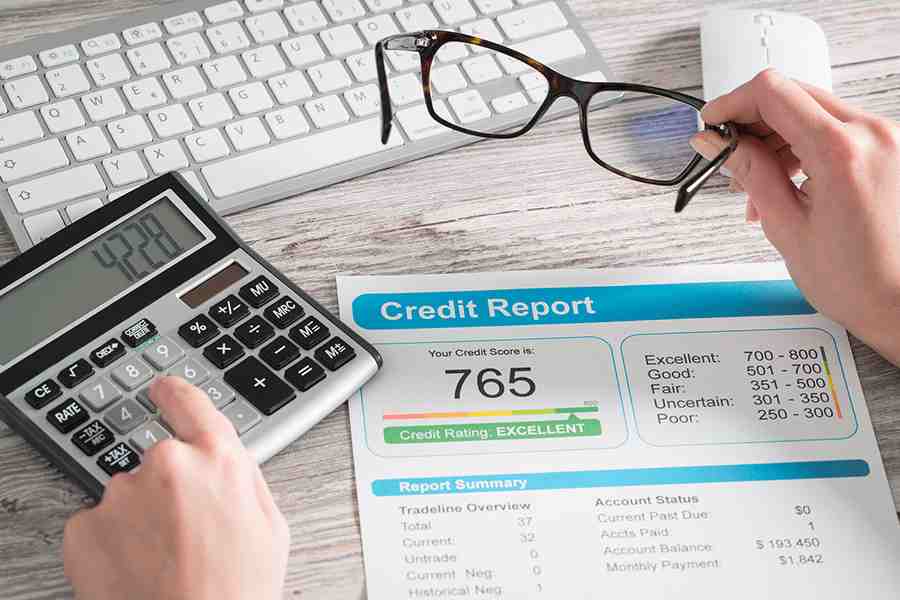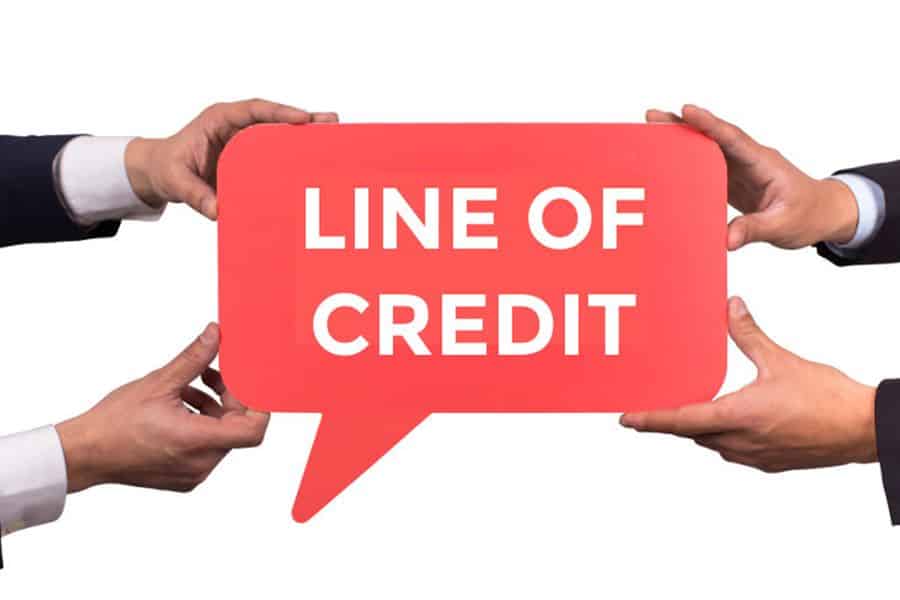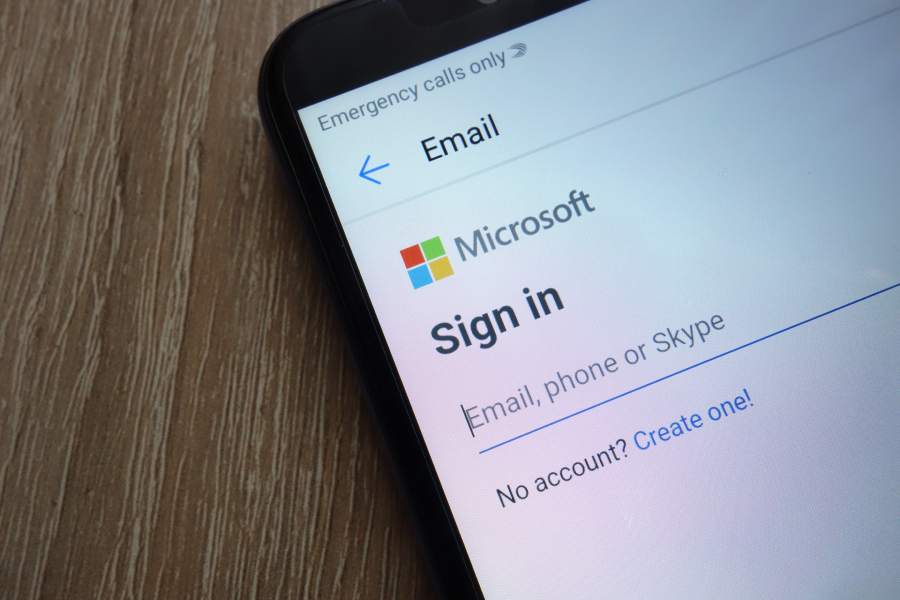
Unsecured business loans for startups can help businesses bridge the gap between business needs and capital resources. We’ve outlined the applicable steps on how to get an unsecured startup business loan to help prepare you—from evaluating the type of loan you need and choosing a lender, to submitting your application and accepting the loan agreement.
Step 1: Evaluate Different Types of Unsecured Startup Business Loans
With unsecured business loans, there’s no requirement to pledge collateral. This favors the borrower in terms of risk since there are no assets or property to be seized in the event of default. Notably, lenders take on more risk with these loans, and therefore higher rates and fees are applicable depending on the loan type.
Ensure the loan you choose has rates and terms that fit your budget and can provide for your intended business use. Otherwise, if you don’t plan accordingly, you could be putting your business and the lender at risk.
Unsecured Term Loans
Unsecured term loans provide you with a lump sum amount that is paid off in installments, usually on a weekly or monthly basis. Generally, they have a fixed interest rate and funds can be used for a variety of business expenses.
Specialized term loans also exist. However, they often require the funds to be used for a specific purpose and require you to pledge some form of collateral, such as equipment loans and working capital loans.
Our partner SBG Funding provides unsecured term loans that can help support your business with favorable rates and a quick application and approval process. Visit SBG Funding to learn more.
Unsecured Business Line of Credit
An unsecured business line of credit is a revolving credit facility in which you can utilize funds on an as-needed basis. You can request a draw on the line and then have the funds deposited to your account of choice. This makes it a great option for financing short-term expenses or covering temporary cash flow shortages or emergencies.
Many lenders offer lines of credit up to $250,000, and required repayments are based on the current balance of the line. Funds drawn must be repaid within the draw period, usually between 12 to 24 months.
Head over to Bluevine, our partner, for its competitive business line of credit rates and fast approvals.
Small Business Credit Card
Small business credit cards are another form of revolving credit that allows you to make purchases up to the card’s credit limit. You can repay the balance over time, and make the minimum monthly payments based on your loan balance. Credit card rates tend to be much higher than other forms of credit—usually 20% or higher—so it’s often best to use a credit card for short-term expenses only. Notably, some business credit cards offer rewards or special offers that may be a perk for your business.
Consider checking out American Express Blue Business CashTM, as it’s one of our best small business credit cards.
SBA Loan
SBA loans are government-guaranteed and offer favorable financing options through an SBA-approved lender. Most loan programs offered have competitive rates and terms due to their government-backed nature and don’t require collateral for loans up to $50,000. Otherwise, if a higher loan amount is needed, collateral requirements may be requested by the participating lender.
Personal Loan for Business Purposes
If you don’t meet the qualification requirements to get a small business loan, the best personal loans for business funding can help you secure funding for your company if you have a strong personal credit history. Personal loans can be in the form of a closed-end term loan, where you receive a lump sum of cash and make periodic payments—usually with a fixed interest rate—until the loan is paid off.
Step 2: Determine Your Eligibility Based on Loan Requirements
You may have difficulty obtaining an unsecured loan if your business has limited resources or credit history. Qualification requirements will vary by lender; however, lenders generally look at your credit score, financial history, and business plan when determining your eligibility for a loan. That said, rates and terms can vary depending on the risk tolerance of the lender.
Credit scores are determined by five major pieces of information:
- Payment history: Consistently making timely payments will help you get a higher credit score. Late payments have less of a negative impact on your score as more time passes, and more severe negative items—such as collections and bankruptcies—will have a greater effect.
- Amounts owed: Using a high percentage of your available credit could signal to lenders that you may be at a higher risk of defaulting. A good rule of thumb is to use less than 30% of your available credit limits on credit cards.
- Length of credit history: Your credit score considers not only the age of your oldest credit account but also the average age of all of your combined accounts.
- Mix of credit: Having experience with different types of loans shows you can handle credit responsibly. Types of loans can include credit cards, auto loans, and mortgages.
- New credit: Borrowers seeking or opening multiple credit accounts in a short period typically represent a higher risk of defaulting.
If you’ve recently paid off a large balance on a credit card and want your credit score to reflect this quicker, you can ask the credit card provider to make an off-cycle update to the credit bureaus. Otherwise, it can take up to five weeks, as most providers only send updates to the credit bureaus once a month.
Strong financial history of your business can improve your chances of approval—including positive cash flow, high net income, and low levels of business debt. If lenders can see a demonstrated healthy track record, they’ll likely be more comfortable taking on risk knowing you have the resources to repay in the event of default.
A business plan is a way to showcase the goals, structure, and operations of your business. This can be a vital tool if your business hasn’t had much time in business, as a lender may look at your overall business goals and how you plan to achieve them instead of relying on your business financial history.
Common items in a business plan include:
- Executive summary
- Overview of your products and services
- Target audience
- Competitor analysis
- Marketing strategies
- Budget
- Projections for revenue and expenses
- Analysis of industry-specific risks
Step 3: Consider Various Lenders & Their Offerings
Each lender will have their own qualifying criteria and loan offerings. So, you should do some research to ensure you choose a lender that fits your business needs and your budget—you can start with our list of the best unsecured business loans to learn more.
Otherwise, you can shop around for a loan from a traditional bank, credit union, or other online lender. When choosing a lender, keep your priorities in mind and determine what factors are most important to you.
Here are some factors to consider when choosing a lender to facilitate a startup business loan:
- Rates and fees
- Maximum loan amount
- Repayment term
- Repayment schedule
- Customer service
Step 4: Prepare & Submit an Application
After choosing a lender that fits your financing needs, you’ll need to prepare and submit a formal loan application. While the application process varies by lender, you can usually fill out an application online or apply in person. Both options are relatively quick and simple to complete.
You’ll need to prepare any required documentation and provide basic information about you and your business, such as its time in business and monthly income, alongside loan request details such as your desired amount and intended use of funds.
Step 5: Provide Documentation to the Lender
Lenders will require documentation to aid in the verification and creditworthiness of your business before making a lending decision. The following are commonly requested items that you should be prepared to provide to the lender:
- Federal tax ID number
- Personal and business tax returns
- Personal and business bank statements
- Cash flow statements
- Profit and loss statements
- Business plan
- Articles of incorporation for your business
- Business license (if applicable)
Step 6: Review & Accept Your Loan Offer
Upon review of your application, lenders will present you with details regarding your request. If approved, you should receive a document outlining the potential terms and conditions of the requested loan.
There are a few items for you to consider before you sign an agreement, including:
- Loan amount
- Interest rate
- Fixed vs variable rate loan
- Loan term
- Repayment schedule
- Monthly repayment amount
- Loan fees
- Conditions of usage of funds
Discuss any questions you may have about the terms of your loan with your lender. It’s better to talk things out and ensure both parties have the opportunity to address concerns (or potentially negotiate) before signing an agreement.
Who Unsecured Startup Business Loans Are Right For
Unsecured business loans can provide financing opportunities for a wide variety of qualified businesses. It may be for you if you are
- An established business with reliable income: Since there’s no collateral requirement to secure the loan, lenders will want to ensure your business is profitable and mitigate as much risk as possible. If you can demonstrate that your business has a solid credit history and positive cash flow, they’re more likely to consider you for approval.
- A borrower with strong personal credit history: Overall, unsecured loans are tougher to qualify for. While requirements will vary per lender, you’ll need to prove you’re a creditworthy borrower who can manage repayment. Notably, if you have strong business and personal credit scores, you may be more likely to get favorable rates and terms.
- Planning on making a large purchase for your business: Unsecured loans don’t come without risk, so you should only partake in financing that you can afford and that will benefit your business. If you plan on making a large purchase and need to finance it, an unsecured business loan is a viable option for reliable borrowers who are financially capable of repaying debt obligations.
Pros & Cons of Unsecured Startup Business Loans
Other Things to Consider
Even though you don’t have to pledge collateral, there are potential risks involved with unsecured startup business loans. In the event of default, there can be consequences ranging from late fees to legal action against you or your business. Before proceeding with obtaining a business loan, you should consider the following:
If you are taking out an unsecured startup business loan, consider your confidence level in how it will impact your business revenue and its ability to generate enough income to repay the loan. Things do not always go according to plan, so it’s also a good idea to have a backup plan if you realize you aren’t getting the intended results from the loan proceeds. This could include selling personal or business property to raise cash to repay the loan.
Having an emergency fund can help cover temporary cash flow shortages that could otherwise cause you to have to make a late payment and incur additional fees. The size of your emergency fund will depend on your specific business. Seasonal businesses may need more cash in the off-season, while those that depend heavily on business equipment to generate revenue may want at least enough cash to repair or replace vital equipment.
Depending on your loan agreement and lender’s policies, missed payments on your business loan could also affect your other personal and business credit accounts if it’s reported to the credit bureaus. When creditors see you with a pattern of late payments to anyone else, you’re viewed as having a higher risk of defaulting, which could result in your accounts being terminated.
In the event you don’t qualify for an unsecured startup business loan, there are a few ways to get alternative funding for startups.
- Rollover for Business Startups: A Rollover for Business Startups (ROBS) allows you to utilize funds from your retirement account with a minimum investment of $50,000. To learn more, visit Guidant Financial, our partner, to check out its ROBS financing options.
- Loans from friends/family: If you don’t qualify for traditional financing via a lender, you can approach friends or family members who may be willing to help fund your business. Generally, this option also offers favorable rates and terms that may be beneficial to businesses on a budget. See our step-by-step guide on raising money from family & friends to fund your business.
- Invoice factoring: Invoice factoring allows you to receive an advance on invoices that you have billed to clients but have not yet been paid. You can typically get funding for up to 80% of the unpaid invoice amount, and companies like FundThrough can also offer quick funding times Check out FundThrough for more details.
- Crowdfunding: Crowdfunding is an opportunity to raise funds via an online platform that allows interested investors to partake in financing your business. There are a variety of methods of return, including donation-based, rewards-based, equity-based, and debt-based. Learn more by reading the pros and cons of crowdfunding and reviewing our roundup of the best crowdfunding sites for small businesses.
- Business grants: When applying for business grants, you have the opportunity to be awarded funds that can be used to support your business. You’ll have to find ones you’re eligible for, but it can be a worthwhile endeavor to receive “no strings attached” financing. See our list of leading business grants.
Frequently Asked Questions (FAQs)
There are unsecured term loans, lines of credit, personal loans for business, or even SBA loans available to finance your business needs.
A variety of lenders can provide unsecured loans, whether it be a traditional banking institution, an online lender, or even friends and family offering loans.
If denied, you may want to consider a lesser amount or determine your available resources to qualify for a secured loan. You can also speak to the lender and find out why you were denied so that you can be more prepared in your next attempt.
Bottom Line
Now that you know how to get an unsecured startup business loan, you can take actionable steps toward obtaining funds for your business. A strong personal credit history and a solid business plan can increase your chances of approval, but keep in mind that unsecured loans in general tend to have higher rates and fees, so be sure to shop around for the best terms that fit your budget.





